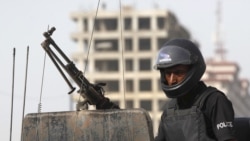Law enforcement and the rule of law in Pakistan got a boost recently with some assistance from the United States. Last month, U.S. Ambassador to Pakistan David Hale and Pakistan Economic Affairs Division Secretary Tariq Bajwa recently signed a one-year $48.6 million bilateral assistance agreement.
Under the agreement, the U.S. Department of State’s International Narcotics and Law Enforcement Affairs Bureau will provide support to the government of Pakistan in building Pakistan’s law enforcement capability, fighting illicit narcotics, and strengthening its criminal justice system.
The United States signed the first such bilateral assistance agreement in 1982. Subsequent yearly agreements have supported the training of tens of thousands of police officers and prosecutors, construction of police stations, and provision of vehicles, equipment, and life-saving personal protective gear for law enforcement agents.
The new agreement will fund several programs throughout Pakistan, including initiatives to improve the capability and reach of provincial police and other law enforcement institutions through training, equipment, and infrastructure support. Programs will also support women’s access to the justice system, as well as support the recruitment, retention, and advancement of women as police officers, prosecutors, and judges.
In addition, programs will help Pakistan interdict illegal narcotics, arrest and prosecute drug traffickers, fund crop substitution and agricultural training programs for poppy farmers, and provide small-scale irrigation, hydro-electric systems and farm-to-market roads in Khyber-Pakhtunkhwa province and the Federally Administered Tribal Areas.
Lastly, it will promote rule of law by providing training to provincial and federal prosecutors and judges in effective trial advocacy, and to corrections officials in modern prison administration.
The Bureau of International Narcotics and Law Enforcement Affairs works in more than 90 countries to help them combat crime and corruption, counter drug-related crime, improve police institutions, and promote laws and court systems that are fair and accountable.
The United States is proud to work with its partner Pakistan to support a criminal justice system that serves and protects the people of Pakistan.






